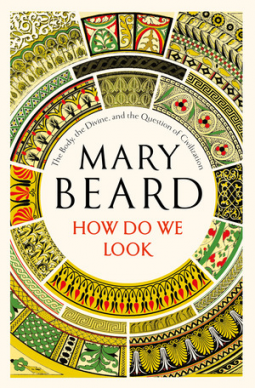
How Do We Look
The Body, the Divine, and the Question of Civilization
by Mary Beard
This title was previously available on NetGalley and is now archived.
Buy on Amazon
Buy on BN.com
Buy on Bookshop.org
*This page contains affiliate links, so we may earn a small commission when you make a purchase through links on our site at no additional cost to you.
Send NetGalley books directly to your Kindle or Kindle app
1
To read on a Kindle or Kindle app, please add kindle@netgalley.com as an approved email address to receive files in your Amazon account. Click here for step-by-step instructions.
2
Also find your Kindle email address within your Amazon account, and enter it here.
Pub Date Sep 04 2018 | Archive Date Aug 31 2018
W. W. Norton & Company | Liveright
Talking about this book? Use #HowDoWeLook #NetGalley. More hashtag tips!
Description
Conceived as a gorgeously illustrated accompaniment to “How Do We Look” and “The Eye of Faith,” the famed Civilisations shows on PBS, renowned classicist Mary Beard has created this elegant volume on how we have looked at art. Focusing in Part I on the Olmec heads of early Mesoamerica, the colossal statues of the pharaoh Amenhotep III, and the nudes of classical Greece, Beard explores the power, hierarchy, and gender politics of the art of the ancient world, and explains how it came to define the so-called civilized world. In Part II, Beard chronicles some of the most breathtaking religious imagery ever made—whether at Angkor Wat, Ravenna, Venice, or in the art of Jewish and Islamic calligraphers— to show how all religions, ancient and modern, have faced irreconcilable problems in trying to picture the divine. With this classic volume, Beard redefines the Western-and male-centric legacies of Ernst Gombrich and Kenneth Clark.
Available Editions
| EDITION | Other Format |
| ISBN | 9781631494406 |
| PRICE | $24.95 (USD) |
| PAGES | 240 |
Featured Reviews
 Reviewer 153322
Reviewer 153322
A beautiful and witty art survey, about one of my favorite subjects--people and how they represent themselves. What does it mean politically and socially to be painted "warts and all," or as a hundred foot tall, bare-chested incarnation of Ra? Beard carefully chooses pieces from around the world, setting them in context and revealing how they illustrate the culture's sense of self, power, gender and imagination.



